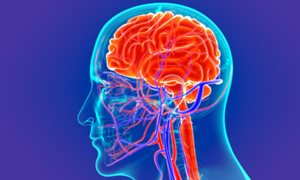
The Olympic Games will take place in extreme weather conditions, which increases the risk for performance loss and the development of heat related illnesses. Dutch Olympians of TeamNL have prepared for these challenging conditions based on a personal acclimation and cooling advice after participation in a study led by researchers from Radboud university medical center.
It will be hot in Tokyo during the Olympics in the coming weeks. Extremely hot. The expected temperature is 32 degrees Celsius on average, and the humidity is over 75%. Not ideal conditions for elite athletes who have spent five years of training to deliver their best possible exercise performance. The International Olympic Committee is doing everything possible to make the conditions as favorable as possible, such as rescheduling races to the early morning, and applying air conditioning and water spraying in and around the stadiums.
But what can athletes do themselves to be as prepared as possible at the start? This question was posed by scientists from Radboud university medical center in collaboration with sports organization NOC*NSF, among others. They wanted to know how TeamNL athletes respond to the extremely hot conditions. What is needed to deliver an optimal exercise performance without increasing the risk to develop heat related illnesses? For this purpose, research project “Thermo Tokyo: Beat the Heat” was initiated in 2018.
Olympic and Paralympic athletes in the climate chamber
130 Olympic and Paralympic athletes participated in this study, performing two exercise tests in the climate chamber at the national Olympic training center. The first exercise test was held in Dutch conditions and the second test in simulated heat of Tokyo. Project leader Thijs Eijsvogels: "We measured the increase in core temperature and kept track of how long it took for them to become exhausted. Based on this, each athlete received a personal heat profile and a personalized advice on how to prepare for the expected heat at the Tokyo Olympics." With this information, the athletes, their trainers and medical supervisors were given the opportunity to prepare for the heat in the best possible way.
Getting used to the heat longer, cooling vests and slush puppies
The initial results of the study show that there is a lot of variation among the athletes. "This shows the importance of an individual approach in preparing for the Olympics. Every athlete has their own heat profile, so a one size fits all approach cannot be applied," said Yannick de Korte, as PhD student associated with the Thermo Tokyo project.
For example, athletes whose performance decreases significantly in the heat benefit from a longer heat acclimation or acclimatization period in which they get accustomed to the heat and beneficial physiological adaptations take place. Alternatively, an athlete with extreme exercise-induced elevations of core temperature rises should place more emphasis on cooling solutions before and, where possible, during exercise.
Thermophysiologist Coen Bongers: "Such cooling strategies can be done by the cooling vests that have been specifically developed for this purpose, and of course by drinking cold water or ice slush." Nevertheless, it is important to note that all TeamNL athletes should apply both acclimatization and cooling solutions, as marginal gains help to achieve that ultimate sports performance.
Video Thermo Tokyo: Beat the Heat
In this video physiologist Thijs Eijsvogels explains the project. Football player Renate Jansen takes the exercise test.

-
Want to know more about these subjects? Click on the buttons below for more news.
More information
Pauline Dekhuijzen

wetenschaps- en persvoorlichter
Related news items

Grants for heart and kidney research Two awards to Radboudumc in Open Competition ENW-XS
21 July 2022Two researchers from the Radboudumc receive a grant from the NWO within the Open Competition of the Exact and Natural Sciences. They are Thijs Eijsvogels, who studies the heart, and Pieter Leermakers, who studies the kidneys.
go to page
Your heart rate as a thermometer Research Olympic athletes will be followed up during 4Daagse
18 July 2022Body temperature can be determined from heart rate. This is what research by the Radboudumc among Olympic athletes shows. Athletes can use this method during training to eventually perform better in the heat. The technique is now being further investigated among participants in the 4Daagse.
go to page
Exercise program appears to be a good alternative to surgery for chronic chest pain Reduced risk of other conditions, hospitalizations, and mortality
9 December 2021 Patients with chronic chest pain may benefit more from following an exercise program than from surgery in which doctors place a stent. Data from over 18,000 patients show a reduced risk of mortality, hospitalizations and other conditions. go to page
How much should we exercise to live healthier lives? Research into the relationship between exercise, heart disease and mortality
3 December 2021 It has long been known that exercise reduces the risk of many chronic diseases. However, we do not yet know exactly how much exercise is necessary to achieve health benefits. go to page

